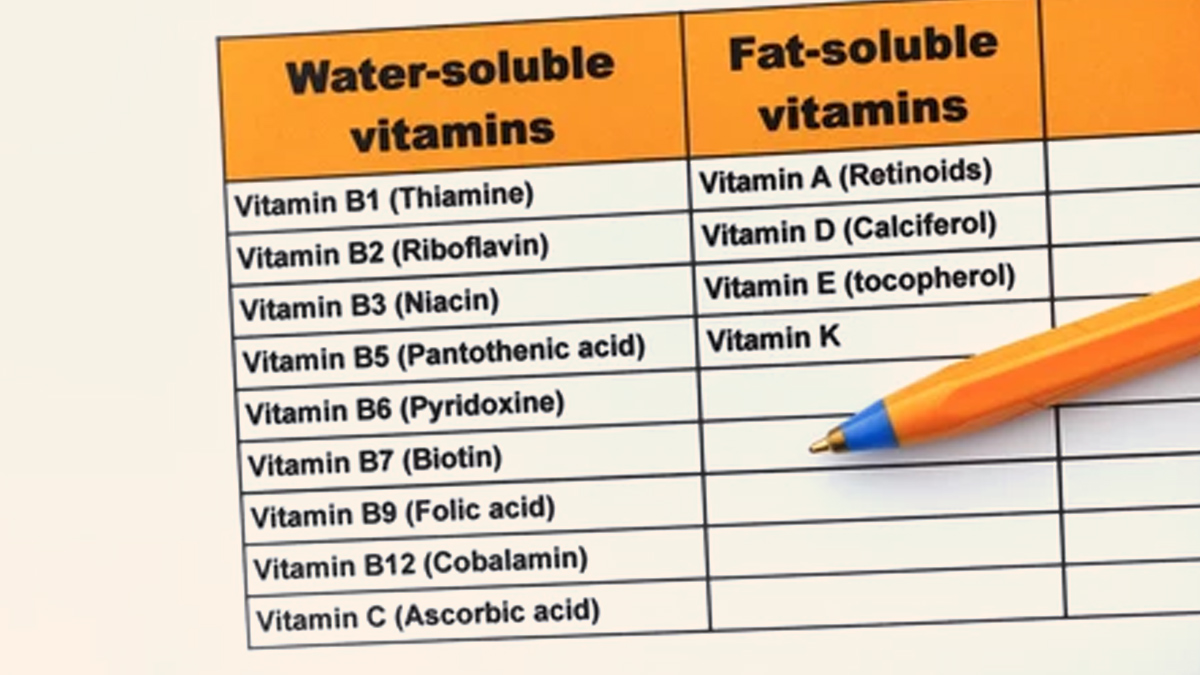Vitamins play an important role in maintaining our health. But did you know that all vitamins are built differently and aren't the same? Another interesting fact about vitamins is that our body absorbs them differently. While some are stored and continue assisting various bodily processes, there are some others that are excreted from the body.
Here's a detailed guide to what water-soluble and fat-soluble vitamins are and how the two differ from each other.
What Is A Fat-Soluble Vitamin?

Fat-soluble vitamins are vitamins that are stored in the body for longer periods of time. They are absorbed along with fats in your diet and remain in the liver and fatty tissues until they are required. In fact, they can be stored for up to six months until your body needs them, according to WebMD.
For those who do not know, fat-soluble vitamins aid various bodily functions, including vision, bone health, immune function, and blood clotting.
Also Read: Power Of Morning Nutrition: Tailoring Breakfast To Your Dietary Needs For Optimal Health
What Is A Water-Soluble Vitamin?
Unlike fat-soluble vitamins, water-soluble vitamins don't get stored in the body; instead, they dissolve in water. They enter the bloodstream and are immediately absorbed into the tissues for use. Excess of this type of vitamin is passed through urine. Given that water-soluble vitamins do not remain in the body for long, they need to be taken regularly through diet.
The wide range of water-soluble vitamins helps boost the immune system, keeping illnesses and diseases at bay. They also speed up the healing of wounds, keep your bones strong, and also help regulate hormones.
Which Vitamins Are Fat-Soluble?

There are four types of fat-soluble vitamins, which include:
Vitamin A: Also known as retinol, vitamin A helps with vision and supports bone and reproductive health. Found in animal products like liver, butter, and egg yolks.
Vitamin D: Also known as the "sunshine vitamin," vitamin D is produced by the body when exposed to sunlight.
Vitamin E: It is an antioxidant that helps protect cells from damage. Found in vegetable oils, nuts, seeds, and green vegetables.
Vitamin K: This vitamin helps with blood clotting, bone health, and preventing calcification of blood vessels. Found in leafy green vegetables, vitamin K1 is found in animal products and fermented soy products.
Also Read: Expert Shares Top Vitamin Deficiencies That Can Be Fatal And How to Overcome Them
Which Vitamins Are Water-Soluble?

According to the National Cancer Institute (NCI), water-soluble vitamins are found in many plant and animal foods and in dietary supplements and must be taken daily. These are:
- Vitamin B1 (thiamine)
- Vitamin B2 (riboflavin)
- Vitamin B3 (niacin)
- Vitamin B5 (pantothenic acid)
- Vitamin B6 (pyridoxine)
- Vitamin B7 (biotin)
- Vitamin B9 (folate or folic acid)
- Vitamin B12 (cobalamin)
- Vitamin C (ascorbic acid)
Conclusion
Vitamins are extremely important for your body and your overall health. From strengthening your bones to boosting your immunity to regulating your hormones, your body needs vitamins to function. However, it is crucial to understand the different types of vitamins: water- and fat-soluble vitamins, which live in the fluids and the fat in your body, respectively. Understanding the difference between the two helps you maintain a balanced diet and avoid deficiencies. Consult your healthcare provider if you have any further questions regarding the same.